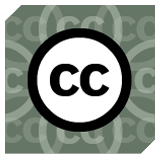Number 10 answers software patent petition

(via Laurence Diver and other sources) The Prime Minister's office has been accepting online petitions, which has prompted all sorts of people making specialist requests. One such petition has been posted against software patents, which reads "We the undersigned petition the Prime Minister to make software patents clearly unenforcible". The petition gathered 2,215 signatures.
Perhaps more astounding than the actual petition was the very informed reply. The response reads:
"The Government remains committed to its policy that no patents should exist for inventions which make advances lying solely in the field of software. Although certain jurisdictions, such as the US, allow more liberal patenting of software-based inventions, these patents cannot be enforced in the UK.However, notice that the language is still against "pure software", or "software as such". As I have commented often, some software patents will still get through, but this is an encouraging sign.
The test used to discern between patentable and non-patentable subject matter in the UK has recently been clarified by the courts, and is applied rigorously by the Patent Office. Under this test, the true nature of the advance being claimed in a patent application must be determined, and if this advance lies solely in the field of software, or another non-technical field such as methods of doing business, the patent will not be granted. If the advance being made by an invention does lie in a technical field, it must also be non-obvious and sufficiently clearly described for the invention to be reproduced before a patent will be granted by the Patent Office.
The recently published Gowers Review of Intellectual Property, an independent review commissioned by the Government, recommended that patent rights should not be extended to cover pure software, business methods and genes. The Government will implement those recommendations for which it is responsible, and will therefore continue to exclude patents from areas where they may hinder innovation: including patents which are too broad, speculative, or obvious, or where the advance they make lies in an excluded area such as software."

 del.icio.us
del.icio.us







